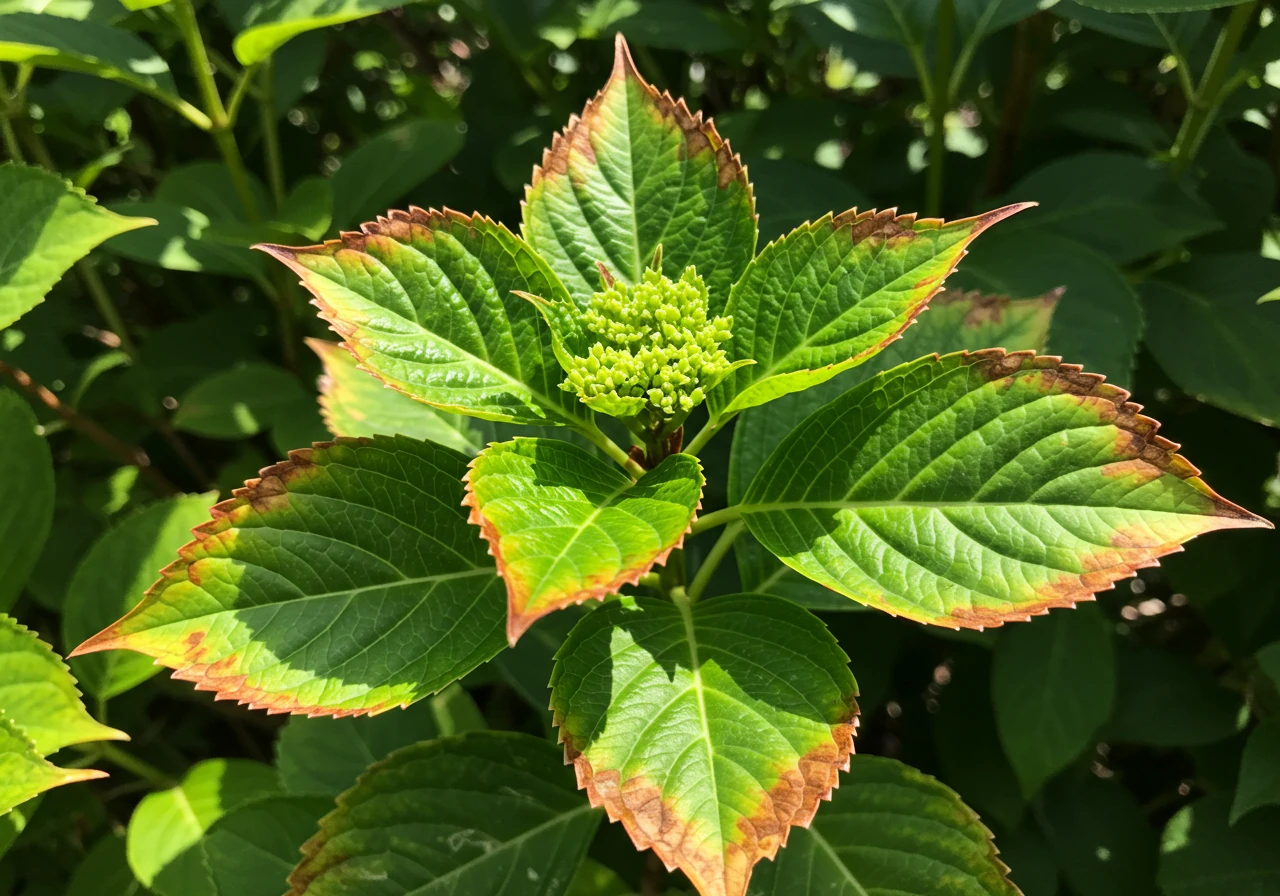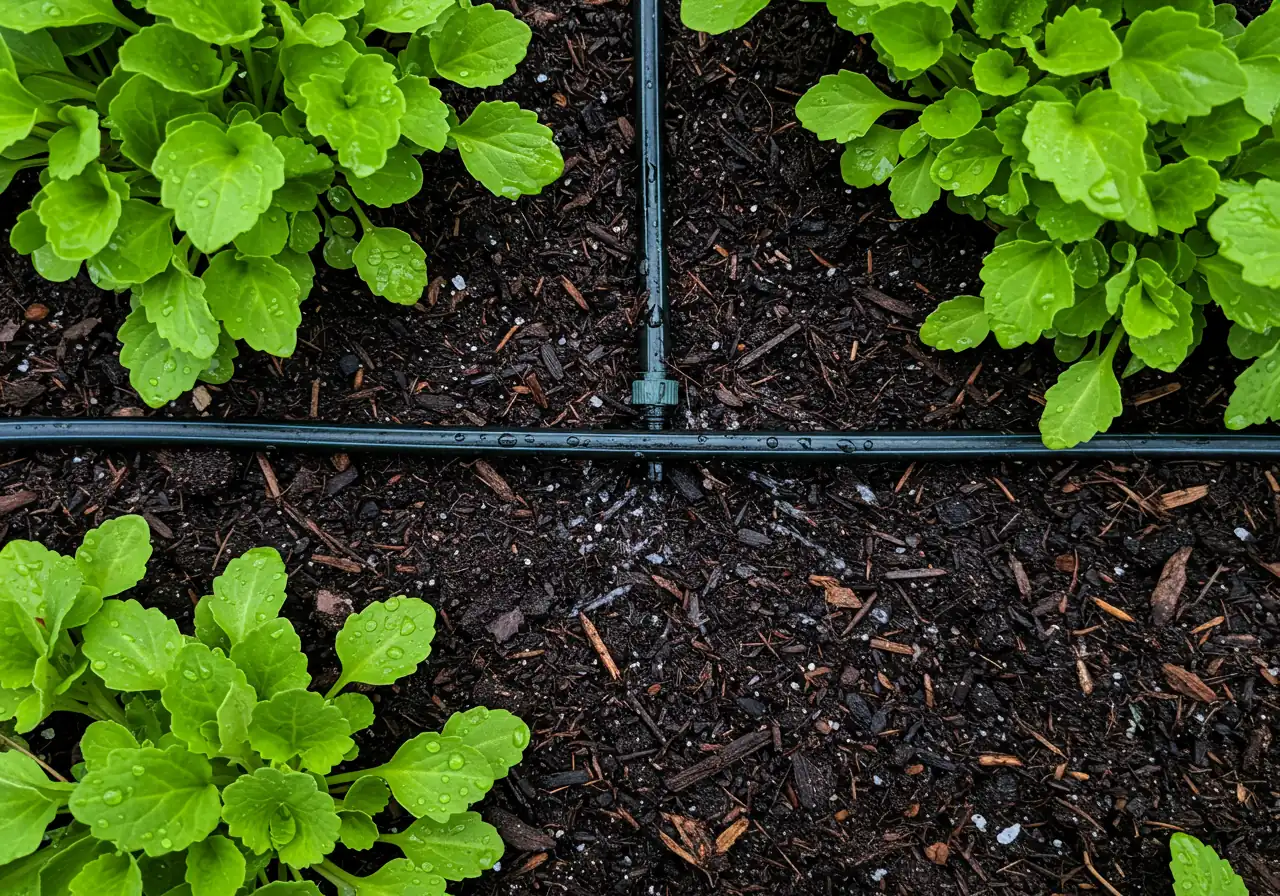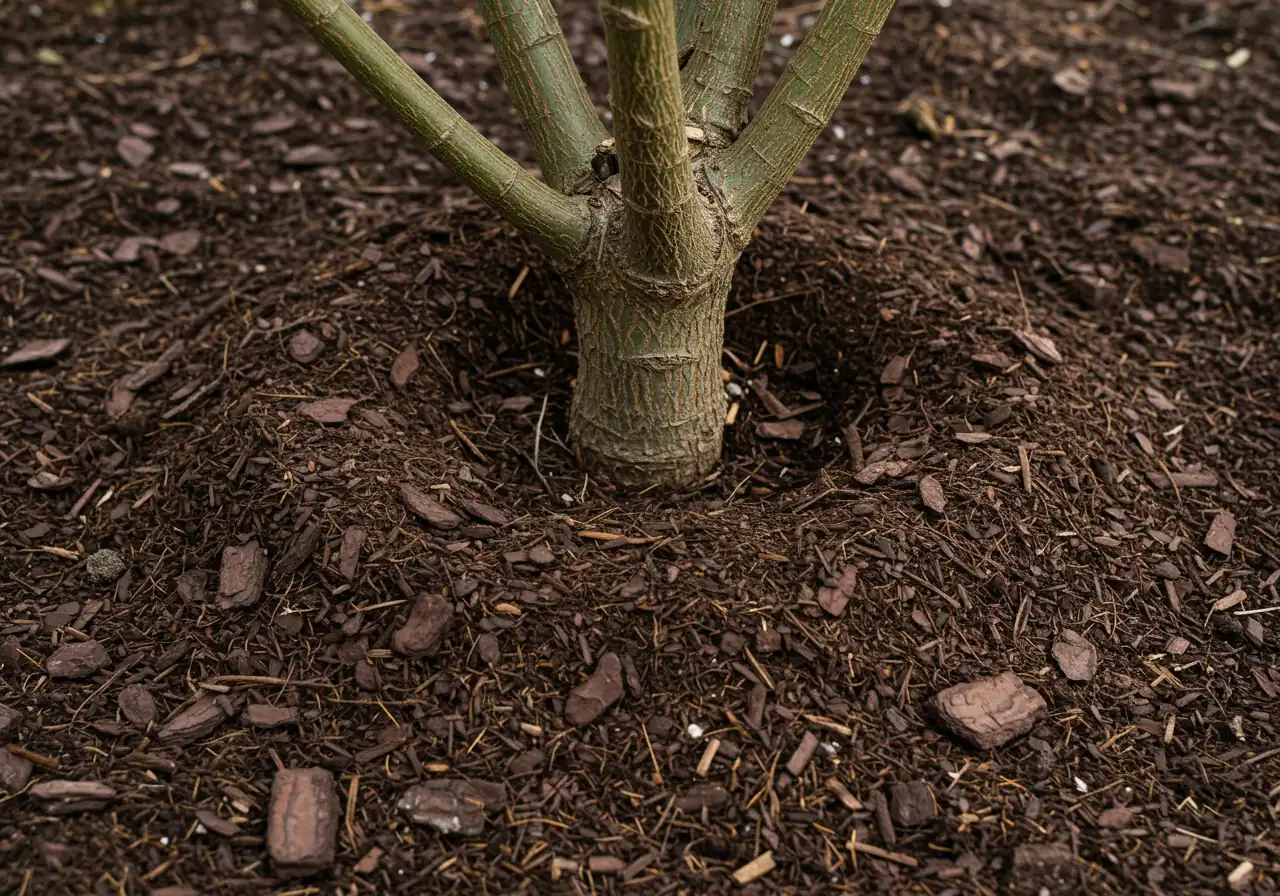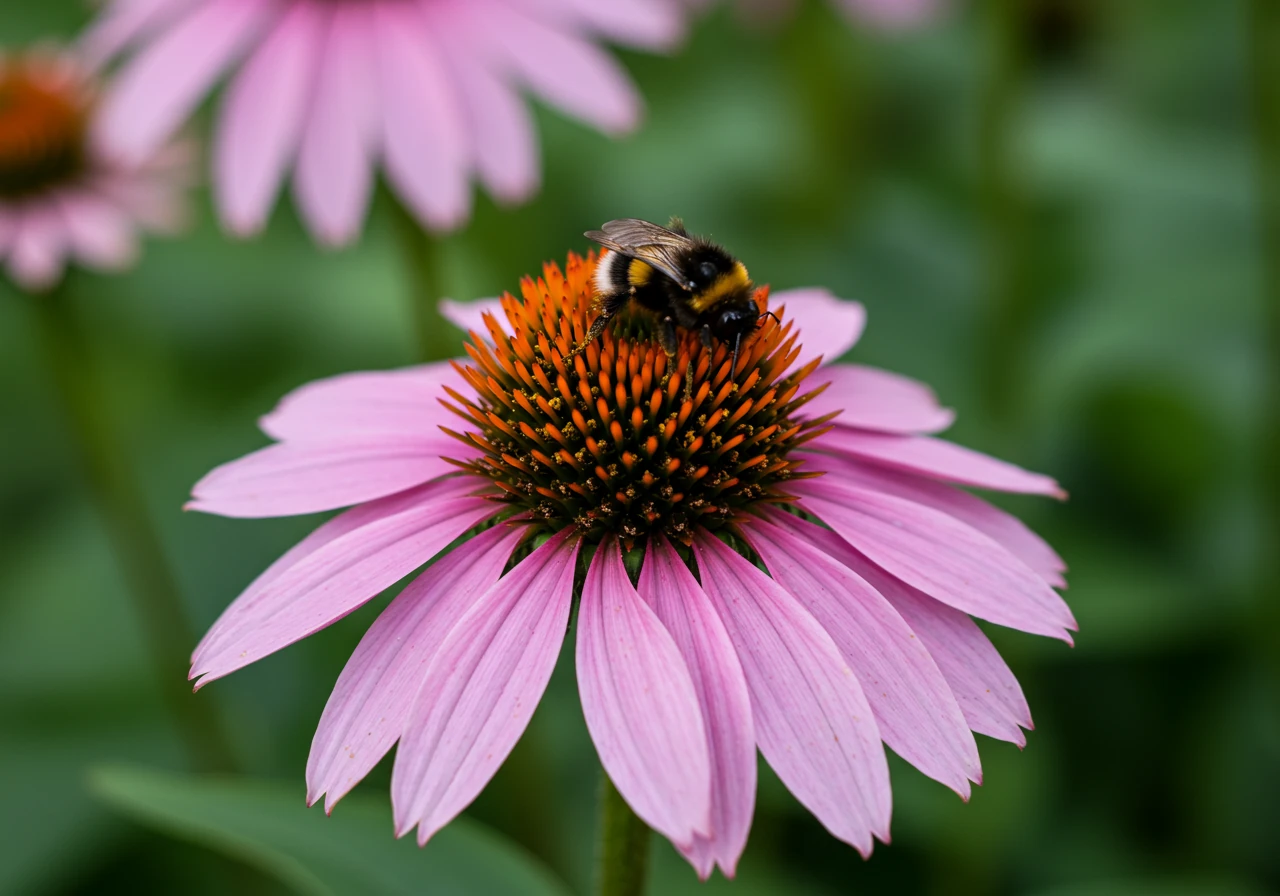Pro Richmond Plant Healthcare Plan: Beat Summer Stress
Quick Summer Plant Care Summary
- Summer heat stresses plants, making them vulnerable to pests and diseases.
- A proactive plan involves smart watering, proper nutrition, mulching, and pest monitoring.
- Key strategies include deep watering, using mulch, eco-friendly pest control, and adapting care to specific plant and soil types.
- This guide provides actionable tips for a thriving Richmond garden all summer.
Need professional help keeping your garden healthy this summer? Request a quote today!
Introduction: Beat the Heat! Your Pro Richmond Plant Healthcare Plan Starts Now
Phew! Is it just us, or do Richmond summers sneak up faster than a squirrel raiding the bird feeder? One minute we're admiring our fresh landscaping, the next our poor hydrangeas look like they desperately need an ice bath. Just like we wilt during a humid Ottawa heatwave (sometimes even in nearby Greely!), our precious garden plants – from mighty trees to delicate flowers – experience *summer stress*.
Think of it as their version of being hot, thirsty, tired, and just plain frazzled by the intensity. This stress weakens them, making them vulnerable targets for pesky insects and frustrating diseases that seem to *love* a heatwave.
But don't throw in the gardening gloves yet! The secret weapon against drooping leaves and lackluster blooms is a *proactive* plant healthcare plan. It’s about more than just occasional watering; it involves smart hydration, nourishing the soil properly, using mulch effectively, and staying one step ahead of problems *before* they damage your beautiful investment. This guide is your roadmap to becoming your landscape's superhero, ensuring a lush, vibrant Richmond garden all season long. Let's dive in!
Decoding Summer Stress: What Your Ottawa Plants Are Up Against
Okay, let's pull back the curtain on what's making your garden feel a bit grumpy during our glorious, but sometimes intense, Ottawa summers. Just like us humans reaching for another glass of iced tea, your plants are dealing with their own set of challenges when the heat cranks up. We call it *summer stress*, and understanding it is the first step to helping your green friends thrive.

So, what exactly are they up against out there in your Manotick oasis or Nepean neighbourhood?
- The Sun & Heat Showdown: Ottawa summers can bring intense sunshine and surprisingly high temperatures. Plants, especially those in full sun all day, can get overwhelmed. Think of it like standing barefoot on hot pavement – ouch! This direct heat can literally scorch leaves, causing brown, crispy patches, especially on the edges. It also speeds up water loss from both the soil and the plant itself. For tips on managing sun exposure, check resources from the Ottawa Horticultural Society.
- Humidity Hijinks: High humidity can be a double-edged sword. While it might seem like moist air is good, sometimes it can hinder a plant's natural cooling process (transpiration) and create ideal conditions for fungal diseases to throw a party on the leaves. No fun!
- Water Woes (Too Much or Too Little): We often get periods of dry weather followed by sudden, heavy downpours. Dry spells obviously cause drought stress (hello, wilting!). But those torrential rains can also be tough, especially in areas with heavy clay soil, like parts of Greely or Nepean. Clay soil drains slowly, and roots sitting in waterlogged soil can't breathe, leading to root rot. Proper initial planting using good Richmond tree planting tips for healthy growth can help establish roots better prepared for these swings. Stay informed on local conditions with Environment Canada's Ottawa forecast.
- Compaction & Competition: Foot traffic or baked-hard clay soil can become compacted, making it difficult for water and air to reach the roots. Plus, stressed plants have a harder time competing with aggressive weeds for precious water and nutrients. Staying on top of Richmond lawn weeds summer control tips is crucial so your desired plants aren't fighting extra battles.
Spotting the Signs of SOS (Save Our Shrubs!):
How can you tell if your plants are waving a little white flag? Keep an eye out for:
- Wilting: This is the classic sign. Leaves droop and look tired, often most noticeable during the hottest part of the day.
- Leaf Scorch: Those crispy, brown edges or spots we mentioned.
- Yellowing Leaves (Chlorosis): Leaves turning pale or yellow, sometimes with the veins remaining green. Stress makes it harder for plants to take up nutrients.
- Dropping Leaves, Buds, or Flowers: The plant is conserving resources by shedding parts it can't support.
- Slowed or Stunted Growth: It just doesn't seem to be putting on much new growth.
Understanding these pressures helps you react appropriately, whether it's adjusting watering, adding mulch, or considering strategic pruning using techniques like those found in Richmond summer shrub pruning tips for healthy gardens. Sometimes, the best layout from the start, informed by smart Richmond landscape design ideas & plans, can prevent many summer stress issues. If things look particularly stressed, a targeted Richmond garden clean up service can remove dead or diseased material, reducing further problems. And remember, if you're feeling overwhelmed, professional landscaping services are always available to help diagnose and treat stressed plants.
The 'Pro Plan' Pillars: Your Summer Plant Survival Toolkit
Alright, garden warriors, let's talk strategy! Surviving the Ottawa summer heatwave isn't just about luck; it's about having the right toolkit. Think of these four pillars as the essential gear your plants need to not just survive, but thrive, even when the sun is doing its best impression of a blast furnace. Master these, and you'll be well on your way to a lush, happy landscape all season long.
Pillar 1: Smart Watering - The Hydration Station

Water is life, especially during hot, dry spells. But *how* you water matters more than you might think. Forget the quick, daily sprinkle – that just encourages shallow roots. We want deep, strong roots!
- Go Deep, Not Often: Aim to water deeply once or twice a week (depending on rain and soil type), soaking the root zone thoroughly. This encourages roots to grow deeper where the soil stays cooler and moister.
- Morning Glory: Water early in the morning. This allows foliage to dry before the intense sun hits, reducing the risk of fungal diseases. Watering in the evening can sometimes work, but leaves staying wet overnight can invite problems. Midday watering is inefficient – too much evaporates! Check City of Ottawa water restrictions.
- Target the Roots: Use soaker hoses, drip irrigation, or just aim your watering can/hose directly at the base of the plants. Wetting the leaves unnecessarily isn't helpful.
- The Finger Test: Still the best way to know if it's time to water. Stick your finger a couple of inches into the soil near the plant base. If it feels dry, it's time. If it's damp, hold off.
- Local Needs: Remember, sandy soil drains faster than clay. Areas like Barrhaven can have varying soil types, so adjust accordingly. During prolonged Ottawa droughts, even usually hardy plants will appreciate a drink. Proper soil preparation essentials before planting makes a huge difference in how well your soil holds moisture.
Pillar 2: Feeding Frenzy - Nutrition Nuances
Stressed plants need energy! While you don't want to force feed them during extreme heat (which can sometimes burn them), providing the right nutrients helps them cope.
- Slow and Steady: Opt for slow-release fertilizers or organic options like compost worked into the soil. These provide a steady supply of nutrients without overwhelming the plant.
- Healthy Soil First: Remember, fertilizer isn't a substitute for good soil. Healthy, living soil allows plants to access nutrients more effectively. Adding compost is always a good idea. Explore options with our material selection guide.
- Avoid Mid-Heat Boosts: Don't apply strong liquid fertilizers during the hottest part of the summer or when plants are visibly wilted from heat/drought. Wait for cooler temperatures or after they've recovered from drought stress.
Pillar 3: Defense Duty - Pest & Disease Patrol

Stressed plants are like waving a dinner invitation to pests and diseases. Staying vigilant is key! We're big fans of Integrated Pest Management (IPM) – using the least toxic methods first.
- Scout Regularly: Take a stroll through your garden often. Look under leaves, check stems. Catching problems early is *much* easier than dealing with a full-blown infestation.
- Know Your Enemy: Common Ottawa culprits include aphids clustering on new growth, powdery mildew appearing as white dust on leaves (especially lilacs and phlox), and the dreaded Japanese beetle munching on roses and other favourites. Learn about identifying pests from resources like the Richmond Garden Clean Up Service to ensure proper disposal. Similar help is available further afield, like the Marionville Garden Clean Up Service or Metcalf Garden Clean Up Service.
Pillar 4: Tidy & Trim - Pruning & Maintenance Power

Think of this as summer housekeeping for your garden. Keeping things tidy reduces stress and prevents problems.
- Light Pruning Only: Summer isn't the time for major reshaping. Focus on snipping off dead, damaged, or diseased branches as soon as you see them. Deadheading (removing spent flowers) encourages more blooms on many plants.
- Mulch is Magic: A 2-3 inch layer of organic mulch (like shredded bark or wood chips) is one of your best summer allies. It keeps roots cool, conserves precious soil moisture (reducing your watering chores!), and suppresses weeds. Check out these tips on Mulching and Edging for Garden Health.
- Weed Warfare: Pull weeds when they're small and preferably after rain or watering when the soil is softer. They compete directly with your plants for water and nutrients. For larger weed issues, consider our property clean up services.
- Service Considerations: If you hire professionals for tasks like mulching or clean-up, ensure you understand the scope of work. Reputable companies will have clear Terms and Conditions outlining service details. They should also respect your personal information, as detailed in their Privacy Policy.
By focusing on these four pillars – Water, Feed, Defend, and Tidy – you're giving your Ottawa garden the best possible chance to beat the heat and look fantastic right through summer!
Example: Water Needs Comparison
*Relative summer water needs (Illustrative)
Customizing Your Care: Adapting to Your Richmond Landscape
Okay, let's be honest – your Richmond backyard isn't exactly the same as your neighbour's down the street, right? Just like people, every landscape has its own personality, quirks, and specific needs, especially when Ottawa's summer sun starts beating down. A generic approach is like trying to fit a square peg in a round hole – it just doesn't quite work! Customizing your plant healthcare plan is key to a truly thriving garden.
Think about the *sunlight situation*. Does your yard bake in full sun all day, or is it rocking some lovely shady spots under mature trees? Sun-drenched areas will naturally need more frequent, deep watering, and you'll want heat-loving plants like coneflowers or sedum there. Shadier zones, however, might stay moist longer and are perfect for shade superstars like hostas or ferns, which would crisp up faster than bacon in full sun. Paying attention to this microclimate is step one.
Then there are the *plants themselves*. Those gorgeous big-leaf hydrangeas everyone loves? They're thirsty! They’ll need more consistent moisture compared to, say, ornamental grasses or yarrow. Your majestic cedar hedge needs different care again. Knowing the specific needs of *your* chosen greenery helps you fine-tune that watering schedule and feeding plan we talked about earlier. Check out our gallery for plant ideas.
And let's talk *dirt* – specifically, your soil type. This is a biggie across the Ottawa region! You might be blessed with lovely loam like some parts of Manotick, which holds moisture well but still drains. Or, you might be battling the infamous heavy clay found near areas like Kars or even right here in Richmond. Clay holds water like a sponge (sometimes *too* well, risking root rot) and can bake hard in dry spells.
| Soil Type | Characteristics | Summer Watering Strategy |
|---|---|---|
| Clay Soil | Heavy, poor drainage, holds moisture long | Water deeply but *less* frequently. Allow soil to dry slightly between waterings. Improve with compost. Consider mulching and edging. |
| Loamy Soil | Good structure, balanced drainage & retention | Follow standard deep watering guidelines (1-2 times/week depending on rain). Mulch helps. |
| Sandy Soil | Gritty, drains very quickly, low nutrient retention | Water *more* frequently, but still deeply. Amend heavily with compost and mulch to improve water retention. |
Understanding these unique aspects of your property – sun, plants, soil – allows you to tailor your approach. Maybe you need specific help tackling tough clay soil or managing debris in tricky spots, similar to how a targeted Metcalf property cleanup service addresses local needs. Observing your landscape and adjusting your care is the secret sauce! If you're unsure how to adapt your plan, why not book an estimate for tailored care? Our team understands the diverse conditions across the region, offering everything from specific solutions to a comprehensive Ottawa property cleanup service. Have questions about your specific yard? Don't hesitate to reach out via our contact us page. And for our existing clients, remember you can always review your tailored services through the convenient customer portal.
Seasonal Focus
Focus: Establishment & Prevention
Ensure new plantings are well-watered. Apply mulch. Monitor for early pests like aphids. Complete any desired sod installation before extreme heat.
Focus: Heat Stress & Pests
Maintain deep watering. Vigilantly check for Japanese beetles and leaf diseases. Deadhead flowers. Avoid heavy pruning or fertilizing. Address lawn weeds proactively following summer control tips.
Focus: Recovery & Prep
Continue watering as needed. Start planning fall cleanup (Ottawa Yard Cleanup, Marionville Yard Cleanup, Metcalf Yard Cleanup). Consider light feeding for perennials preparing for dormancy. Assess overall plant health after summer stress.
Green Guardians: Eco-Friendly Practices for a Thriving Ottawa Garden

Want to be a superhero for your slice of Ottawa paradise *and* Mother Earth? Awesome! Being eco-friendly in your garden isn't about complicated science projects; it's about making smart, simple choices that help your plants thrive while being kind to the environment. Let's become Green Guardians together!
First up, let's talk *mulch* again – because it’s that important! Using organic mulch like shredded bark or wood chips is an eco-powerhouse. It dramatically cuts down on water evaporation (less watering for you!), smothers annoying weeds naturally (fewer chemicals needed!), and slowly breaks down, feeding your soil. It's a win-win-win for sustainable gardening.
Next, embrace the magic of *composting*. Instead of tossing kitchen scraps (like veggie peels and coffee grounds) and yard trimmings in the trash, turn them into 'black gold' for your garden. A simple compost bin reduces landfill waste and gives you free, nutrient-rich goodness to improve your soil structure and water retention. Got way more leaves and twigs than your bin can handle this season? Sometimes calling in the pros for responsible removal makes sense; services like our dedicated Metcalfe Garden Clean Up Service handle yard waste properly, ensuring it doesn't just end up in landfill. We also offer services in Marionville and surrounding areas.
Consider planting *native species*. Plants that naturally evolved right here in the Ottawa region, like Purple Coneflower (Echinacea), Serviceberry (Amelanchier), or Bee Balm (Monarda), are superheroes for sustainability. They're already adapted to our climate swings and soil types, meaning they usually need less water and fuss once established. This is fantastic for gardens in areas like Russell or Winchester, helping create landscapes that thrive naturally. Plus, they provide vital food and habitat for local birds and pollinators – essential for a healthy ecosystem! Need inspiration? You can see beautiful examples of landscapes using hardy, appropriate plants in our project gallery.
Beyond basic watering, think *smarter water use*. Installing a rain barrel captures free, chlorine-free water for your thirsty plants. Grouping plants with similar thirst levels together (sometimes called hydrozoning) means you're not overwatering drought-tolerant plants just to keep needier ones happy. And remember that compost? Adding it regularly improves soil structure, helping it act like a sponge to hold precious water longer. Being eco-conscious guides our work; learn more about our company values and approach on our About Us page. Existing clients can often review service details and preferences through the handy customer portal.
Making even a few of these green choices makes a real difference for our local environment and reduces the strain on resources during hot Ottawa summers. So, let's roll up our sleeves and give back to the planet, one beautiful, sustainable garden at a time. We sincerely want to say thank you for helping keep Ottawa green!
Quick Wins Against Summer Wilt!
Feeling the heat in your Ottawa garden? We get it! Sometimes it feels like our plants are melting faster than a popsicle on the Parliament Hill lawn. Don't let your green friends throw in the towel! Here are a few super-quick, easy-peasy tips to help them fight back against summer stress, whether you're tending plants in sunny Barrhaven or closer to the Rideau River:
- The Early Bird Gets the Water: Give your plants a *thorough* soak right down at the roots, first thing in the morning before the sun gets cranky. Skip the quick, shallow sprinkle – aim for deep hydration less often. Consistent moisture is a cornerstone of good garden maintenance.
- Mulch is Your Unsung Hero: Seriously, spread a 2-3 inch layer of organic mulch (like shredded bark) around your plants. It’s like giving their roots a cool blanket, locking in moisture and stopping weeds. It’s amazing how much less watering you'll need! Keeping the whole garden bed tidy also helps reduce plant stress; sometimes a thorough property clean up is the best way to reset the space.
- Snip the Sad Stuff: See leaves looking crispy, yellow, or totally wilted beyond hope? Snip 'em off! Removing dead or diseased bits helps the plant focus energy on healthy growth and stops problems from spreading. If you've got widespread issues, a targeted Ottawa garden clean up service can efficiently remove the problem foliage.
- Hold the Heavy Feedings: When plants are stressed by extreme heat, avoid pushing them with strong fertilizers. Think of it like trying to run a marathon after pulling an all-nighter – not ideal! Let them conserve energy. This applies to your grass too; proper summer lawn care focuses on survival, not forced greening during drought.
- Phone a Friend (That's Us!): Feeling unsure about what your specific rose bush or wilting maple needs? Don't guess! Getting professional advice tailored exactly to *your* yard can save you time, money, and heartache. See how easy it is to get specific recommendations with our clear estimate feedback process. A little expert help goes a long way! Find us also on Google.
Late Spring / Early June
Apply a fresh layer of mulch. Ensure irrigation systems are working. Perform light structural pruning if needed before heat sets in. Consider new garden installs.
July
Monitor watering needs closely (deep & infrequent). Scout diligently for pests (Japanese Beetles!). Deadhead spent blooms. Avoid heavy fertilization.
August
Continue water monitoring, especially during dry spells. Address weeds promptly. Lightly trim any diseased/damaged growth. Start planning fall property clean-up.
FAQs: Your Ottawa Summer Plant Care Questions Answered
Got questions about keeping your green gang happy during our sometimes-wild Ottawa summers? You're not alone! Here are answers to some common head-scratchers we hear from fellow gardeners across the region, from Richmond to Russell.
Ditch the daily sprinkle! Aim for deep, thorough watering 1-3 times per week, soaking the root zone – check by sticking your finger a couple of inches down; if it's dry, water. Clay soils like in parts of Greely hold moisture longer than sandy spots, so adjust based on your specific conditions and recent rainfall.
It could be either! Sunburn (leaf scorch) usually hits edges or sun-facing sides first, while disease often shows specific patterns or spreads even into shadier parts of the plant. Keeping roots cool and stress-free with the right mulch and soil material selection helps prevent both, but if disease seems likely, removing affected foliage promptly is key – professional help, like a targeted Metcalf yard cleanup service, can ensure diseased material is properly handled.
Oh, if only! Japanese Beetles are notorious party crashers, especially around flowering plants, but also keep an eye out for sneaky aphids clustering on new growth, spider mites causing stippling, and fungal issues like powdery mildew. Prompt removal of affected leaves helps, and for widespread issues requiring extensive removal, services like our Marionville yard cleanup service can manage the debris in surrounding areas too.
Generally, hold off on strong, synthetic fertilizers when plants are already stressed by intense heat and potential drought – it can actually burn them! If you must feed, use compost or a very diluted, gentle organic fertilizer, and preferably apply during a cooler spell or after they've had a good drink. Focus more on consistent watering and good soil health.
New plants often experience transplant shock, looking sad for a bit even with water, as their roots adjust. Ensure you're watering deeply at the base, not just lightly sprinkling the surface, and remember that proper planting techniques covered in professional garden installation services give them the absolute best start. Check out some successful garden transformations to see how healthy plants establish beautifully over time when planted correctly.
Conclusion: Keep Your Richmond Garden Cool, Calm, and Collected This Summer!
Whew! We've covered a lot of ground, just like a determined gardener tackling weeds after a summer rain! Keeping your Richmond landscape looking lush and vibrant through the Ottawa heat doesn't have to feel like wrestling a grumpy groundhog. The secret weapon, as we've seen, is *proactive plant healthcare*. It’s about staying one step ahead of *summer stress* with smart watering, the magic of mulch, keeping an eye out for pests, and giving your plants the TLC they need *before* they start waving the white flag.
A little planning and consistent effort go a long way towards ensuring your garden remains a cool, calm, and collected oasis, even when the humidity tries to tell you otherwise. Think of it as giving your plants their own little spa day, every week!
Feeling a bit overwhelmed or just want a professional eye on your slice of paradise? Whether you're in Richmond, Manotick, Nepean, or elsewhere in the Ottawa area, the team at Clean Yards is here to help! From tailored *plant healthcare* plans to comprehensive *landscaping* and *garden maintenance* services, we've got your back (and your backyard!). Visit us online at CleanYards.ca or use our online booking form to request your estimate today. Let's work together to make this your best gardening summer yet!

